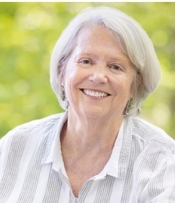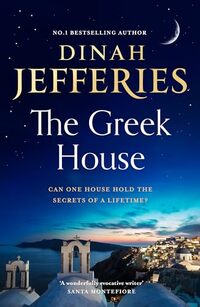Book Title: LITTLE GREAT ISLAND
Character Name: Mari McGavin
How would you describe your family or your childhood?
When you are young and live on an island, you think your whole world is thewhole world. You think everyone waves to everyone else (and if someone doesn’t, either you’ve pissed them off in a big way or they’re having a really bad day); that weather and tide rule and not politicians; and that the “natural world” isn’t something other than you. It is you. I really didn’t get why anyone would live with school shootings and seventy-car pileups or even traffic lights and driving around hoping for a place to park. I mean: why? Then you get to be a teenager, and an island this small and this remote starts to feel constrained. You wish you could put a streak of color in your hair without it being a major conversation topic…never mind kissing someone or...whatever…without everyone knowing and commenting.
What was your greatest talent?
“My mother would say that my greatest talent has always been pissing her off. She’d tell you I worked hard to perfect that skill, but I always saw it as just me trying to be me. Besides that…and I wouldn’t say it’s a great talent by any stretch of the imagination…I’m passionate about sustainable farming. I’m certainly better at that than I am at things like being a mom or understanding other people.
Do you have a significant other?
I have many significant others in the sense that there are a lot of people in my life who mean a lot to me. If you are asking about romantic relationships, then yes. There is my husband, and I still have feelings for him even though I ran away. And there is another man. That relationship is in its early stages, and I’m still married, so I don’t feel comfortable talking about it yet.
What’s your biggest challenge in relationships?
This whole business of figuring out who people are…as opposed to who I think they are…is my biggest challenge. Witness what happened at God’s Bounty. I just blew past the implications of that name, and I took the whole “Pastor Aaron” and “Sister Ann” thing as kind of tongue-in-cheek. I was pretty naïve, probably from growing up on an island. Most people I knew growing up are like me: We aren’t affiliated with religion. It’s not a part of our lives. At God’s Bounty, when we were supposed to be praying or contemplating our sins or whatever, I was thinking about composting food scraps and qualifying for more subsidies. I assumed everyone else was doing more-or-less the same thing.
Then there’s Caleb. I just fell head over heels for him. I thought I knew the real him…. which is odd when you consider that I didn’t even know his real name. But I knew things about him that no one else knew, like what happened to him when he was a kid. I guess you could say that I wanted to change him, but I thought of it as healing his broken parts. So maybe that’s my greatest challenge: thinking I know what’s right and assuming it’s right for everyone and not just what I want. It’s also probably my greatest personal failing. I didn’t see how much trouble we were in—how much trouble I’d put my son, Levi, in—until it was too late.
Where do you live?
Right now, I live in my parents’ house on Little Great Island off the coast of Maine, but I hope to have my own home on this island someday. A part of me still “lives” at God’s Bounty in that I think about it all the time. But if you are asking where I feel most alive, it’s outdoors. Preferably with ocean sounds in my ears, the smell of growing things in my nostrils, and the feel of fresh air on my skin.
Do you have any enemies?
I try to avoid dichotomous thinking, to stay away from defining things in absolute terms like us vs. them or friends vs. enemies. I am certain there are people at God’s Bounty who don’t like me at all right now. I fear them. There are people on this island who disagree with everything I say or do. I don’t have any desire to hang out with them. But are we enemies? I hope not. We are different people, with different values. That doesn’t have to make someone an enemy.
How do you feel about the place where you are now? Is there something you are particularly attached to, or particularly repelled by, in this place?
I am attached to every bit of this island. That channel marker out there on the water. That osprey call. The sight of lupines blooming everywhere in the spring. The smell of a drenching fog. It’s not an attachment in the sense of liking it here or having fond memories. It’s more of an unbreakable bond between my cells and Little Great Island.
Do you have children, pets, both, or neither?”
“I have my son, Levi, who is six. I’ve got chickens, the sheep and the goat, Houdini. I care very much for my animals, but I’m very aware of the fact that farm animals are not pets.
What do you do for a living?
Ha! I’m trying to make a living! At the moment, that means I’ll do pretty much whatever I can do. I clean houses. I work with my dad on his lobster boat. I garden for the summer visitors and do yard work for them. I provide consulting to small farmers looking to use sustainable practices. But what I’m best at—what I hope to make my full living doing—is farming.
What is your greatest disappointment?
I’m disappointed that I failed to make God’s Bounty a sustainable farm that provided food for our community and a loving place to raise a child in harmony with nature without harming the Earth.
What is your greatest source of joy?
Easy question. My son, Levi. Beyond that, I would say witnessing renewal the way one does on a farm. Seeing a lamb get to its feet for the first time, or the seedlings pushing their way out of the soil. Witnessing that phase of the cycle of life gives me hope that something will survive despite the ravages of climate change.
What do you do to entertain yourself or have fun?
My life doesn’t have a lot of downtime in it right now, and that’s okay. I love farming, I love learning more about how to farm responsibly. I love walking, particularly along the shore. Levi and I look for sea glass and shells. And we play cards and some old board games that Harry gave us. Things he found when he cleaned out his house. He also gave me some old Stephen King books, and I’m entertaining myself by scaring myself half to death.
What is your greatest personal failing, in your view?
I failed my responsibilities as a mother. Every animal I’ve ever cared for or studied lives by one rule: protect your offspring. I failed at that. I’m going to spend the rest of my life trying to make that up to Levi.
What keeps you awake at night?
The thought that my husband Caleb will find a way to take Levi away from me and that I’ll never see him again.
What is the most pressing problem you have at the moment?
Money, or the lack thereof. I need to prove to the court that I can provide for Levi’s needs. I need to have land that I can grow vegetables on.
Is there something that you need or want that you don’t have?
I could tell you a hundred other things that are needed around here by me. By all of us. Things money can buy. But what we really want and need—and I’m talking everyone, not just the folks living on Little Great Island—is a healthy planet. One that we respect, nourish, and protect. Because right now, we, as a global community, aren’t doing that. And if we don’t start doing it very, very soon, we’re going to be failing our children and grandchildren in far worse ways that I failed my son.

A Novel
On Little Great Island, climate change is disrupting both life and love
After offending the powerful pastor of a cult, Mari McGavin has to flee with her six-year-old son. With no money and no place else to go, she returns to the tiny Maine island where she grew up—a place she swore she’d never see again. There Mari runs into her lifelong friend Harry Richardson, one of the island’s summer residents, now back himself to sell his family’s summer home. Mari and Harry’s lives intertwine once again, setting off a chain of events as unexpected and life altering as the shifts in climate affecting the whole ecosystem of the island…from generations of fishing families to the lobsters and the butterflies.
Little Great Island Illustrates in microcosm the greatest changes of our time and the unyielding power of love.
Inspirational | Fiction Family Life | Small Town [Sibylline Digital First, On Sale: May 6, 2025, Paperback / e-Book , ISBN: 9781960573902 / eISBN: 9781960573216]

Kate Woodworth is the author of the novel Racing Into the Dark (EP Dutton, 1989), hailed as “A compelling exploration of mental illness” by Booklist and as an “auspicious debut” by Publishers Weekly. Her short stories have appeared in Cimarron Review, Western Humanities Review, Shenandoah and other literary journals. A retired medical writer in addition to fiction writer, she has received numerous awards and recognition for her writing, including a Pushcart Prize nomination, multiple Utah Arts Council and Dalton Pen Communication Awards, and an International Association of Business Communicators finalist recognition. She received her MFA from Boston University.
No comments posted.


 © 2003-2025 off-the-edge.net
all rights reserved Privacy Policy
© 2003-2025 off-the-edge.net
all rights reserved Privacy Policy